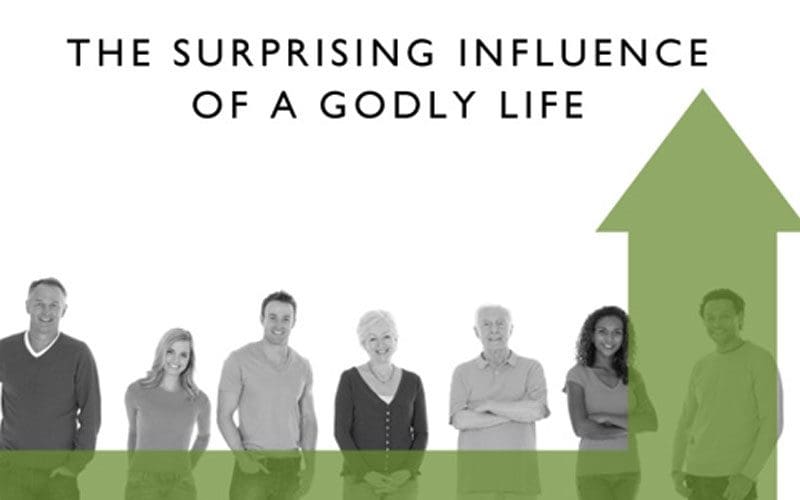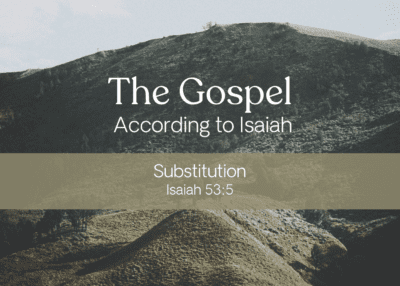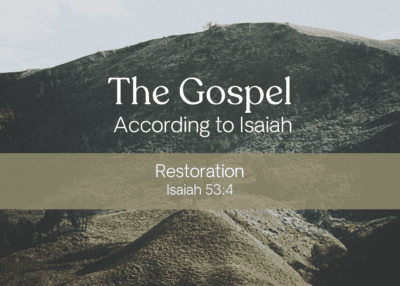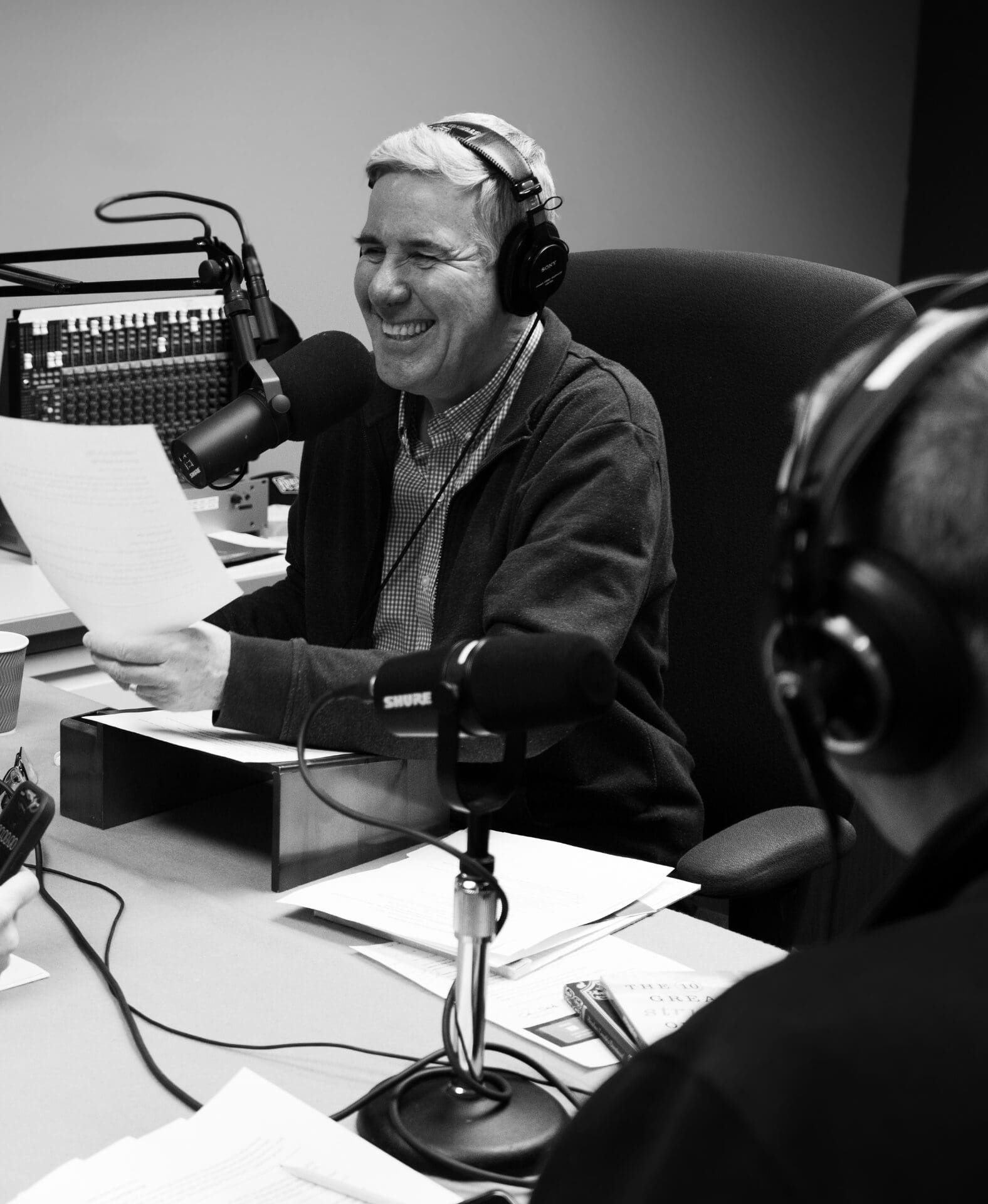“Let it be known this day that you are God in Israel and that I am your servant and that I have done all these things according to your word.” 1 Kings 18:36
The time had come for Elijah to confront the prophets of Baal. Notice it wasn’t his own idea. God extended patience to His people when they turned to idols, but His patience didn’t lead them to repentance. He sent drought and famine that lasted for three years, but His judgment didn’t lead them to repentance either.
Think of this: Among God’s own people, the prophets who spoke the Word of God were being hunted and killed, while purveyors of Baalism were being sponsored by the royal family. So, one day God sent Elijah to Ahab, “Send and gather all Israel to me at Mount Carmel and the 450 prophets of Baal and the 400 prophets of Asherah who eat at Jezebel’s table” (1 Kings 18:19).
Picture the scene: Nearly 1,000 prophets are dressed in bright colors, ready to perform their religious rites, and a large crowd of people who have gathered from the far ends of the country for the big showdown. On the other side stands Elijah, the lone prophet, who speaks and acts under the direction of God.
The Challenge
And Elijah came near to all the people and said ‘How long will you go limping between two different opinions? If the Lord is God, follow him; but if Baal, then follow him.’ 1 Kings 18:21
A decision to make
“Limping between two different opinions…” 1 Kings 18:21
This speaks powerfully to our nation today. If you had taken a survey in the time of Elijah, the vast majority of people in Israel would have said that they believed in the Lord, the God of their fathers.
The problem was that under the onslaught of Baalism, their walk with the Lord had become hopelessly compromised. That’s the significance of the word “limped.” How long will you go on limping between two opinions?
As all students of American history know well, James Monroe was the fifth President of the United States. He is best remembered for what became known as the Monroe Doctrine; his firm conviction that America should not become involved in European wars.
In more recent times, we associate the name “Monroe” with Marilyn Monroe, the famous actress whose life and death were marked with great sadness. On one occasion, Marilyn Monroe was asked if she believed in God. She answered, “I believe in everything… a little bit.”
Philip Ryken described this as the new Monroe Doctrine; believing in everything… a little bit. This new Monroe Doctrine has become…
“…the basic principle of American culture. People do not want to be intolerant, so they believe a little bit in everything. A majority of Americans believe in God, the Bible, Jesus, the power of positive thinking, the basic goodness of humanity, luck, alien life forms, and checking horoscopes every day. The only way to believe all these things at the same time is to adhere to the Monroe Doctrine: believe everything a little bit.” [1]
He then adds, “The whole thrust of Elijah’s ministry was to refute the Monroe Doctrine.”
You cannot worship God, and at the same time, craft your own truth, your own morality or your own life purpose. As long as you try to do both, you will be limping along. There is a decision to make.
A reason to grasp
“If the Lord is God, follow him…” 1 Kings 18:21
Elijah doesn’t say, “Your parents followed the Lord; you should too.” That is a powerful argument, but it’s manipulative, and nobody has the right to say that to you. Following Christ because your parents do or because your friends do will not stand the test of time.
Elijah doesn’t say, “Follow the Lord, because it’s the right thing to do.” The appeal is not to moral duty. Our business is not to try and impose some Christian morality on godless people.
I sometimes hear people say, “Even if Jesus did not rise from the dead, the Christian life would still be the way to live.” That’s not what Paul says: “If Christ is not raised… we are the most miserable people in the world” (1 Corinthians 15:19). If Christ is not raised, the church has nothing to offer. Our message is simple: Christ is risen! Life, purpose, forgiveness and joy are to be found in Him: “If the Lord is God, follow him…”
The challenge is not to choose the way of life that’s right for you. The central question is: Who is God? In New Testament terms: What do you think of Jesus Christ? What is your conclusion about Him, your response to Him, and therefore, your position before Him?
An urgency to consider
“How long?” 1 Kings 18:21
Years had passed, and these people who knew about the Lord had not come to a decision. What about you? Here you are in church. How many years has that been?
You have been taught about God. You have some kind of faith, but it is not clear cut. You are limping. In some measure, you are attempting to embrace Christ and the world at the same time. As long as you are limping, you are not making much progress.
Some of you have graduated from high school this month, some have graduated from college, and you are still limping. What are you going to do? Are you going to throw yourself into sin, or are you going to throw yourself into being a servant of God? You haven’t made up your mind. You have a foot in both camps.
Others are years from graduation, but you are limping as much now as you were then, still trying to love Christ and love the world at the same time, still toying with the same sins, never giving yourself to them completely, but never giving yourself to Christ completely either. How long will you go on limping between two opinions?
An outcome to pursue
“If the Lord is God, follow Him” 1 Kings 18:21
Christian faith can never remain a conviction in the mind. The Gospel never allows you to limp along with Jesus as your Savior, but not as your Lord. That’s impossible! If the Lord is God, follow Him!
The Prophets of Baal: The Sounds of Silence
Early confidence
They took the bull that was given them, and they prepared it and called on the name of Baal from morning until noon, saying ‘O Baal, answer us.’ 1 Kings 18:26
The efforts of these prophets of Baal must have been impressive. Try to picture them: 450 prophets calling out in prayer. Drums are beating, the prophets are in formation, circling the bull, dancing and singing. You find all the trappings of their rituals.
The History Channel would have loved this. National Geographic magazine would have run a photo feature on the religious dance culture of the prophets of Baal. This was an impressive prayer meeting—hundreds of people actively participating for hours and hours.
It’s very striking that when Elijah asked these prophets to call on Baal to send fire, they accepted the challenge. They must have felt there was a chance of it happening. Satan is able to do false signs and wonders. These prophets feel that their gods can deliver. They are supremely confident.
With all these prophets and all this confidence, it’s natural for the crowd to look at them and say, “Can all these people really be wrong?”
Growing distress
They cried aloud and cut themselves after their custom with swords and lances, until the blood gushed out of them. 1 Kings 18:28
What started out so optimistic, so bright, and so colorful, now begins to turn dark. There is a more sinister element beginning to show. They began to cut themselves, and at this point, it becomes painful to watch.
These men were willing to go through a lot of self-inflicted agony before they were ready to admit defeat, and Elijah does not shortcut the process. Before they can be convinced that the Lord is God, they must see that there is no other.
Here is the tragedy: When they called on Baal, there was no one there: “There was no voice. No one answered. No one paid attention” (1 Kings 18:29). That is the problem with every spirituality that replaces God at the center of the universe with something else; it leaves you with a black hole.
Here’s the question for every person who is not yet a Christian today: Maybe you live for sports, for family, or for your career. Maybe you live for the good you can do in the world. Can what you live for answer your prayers? Philip Ryken says,
“Some people worship success, selling their souls to climb the corporate ladder… But there is one thing a career cannot do; it cannot answer prayer.
Some people worship pleasure, pampering themselves with rich foods, exciting sporting events and the latest music. They live with as much luxury as they can afford and as much sensuality as they can get away with. But there is one thing that food and concerts and travel and pornography cannot do: They cannot answer prayer.
Some people worship personal beauty, giving priority to their outward appearance. As churches empty, health clubs flourish… But there is one thing that cosmetics and [fitness] cannot accomplish: They cannot answer prayer. [2]
As you think about what’s at the center of your world, can what you live for answer your prayers? You don’t want to find yourself crying out to a black hole of nothingness.
Ultimate disaster
Elijah brought them down to the brook Kishon and slaughtered them there. 1 Kings 18:40
Elijah was in a very different position from ours today. He was a prophet. That meant he acted under direct revelation from God. The special role given to prophets explains why the fate of the false prophets is so severe.
A prophet speaks the word of God, and Deuteronomy 13 makes it clear that if any Israelite presumed to speak in the name of God falsely, they would do so on the penalty of death.
Elijah is often a Christ figure in this story. He brings the promise of God to a widow and calls her to great sacrifice. He raises the widow’s son, pointing to the day of our resurrection. Here Elijah points us to the great day of God’s judgment.
The awful end of the prophets who led the people of God astray reminds me of the words of Jesus: “Whoever causes one of these little ones who believe in me to sin, it would be better for him if a great millstone were hung around his neck and he were thrown into the sea” (Mark 9:42).
This points us to a coming day of judgment. What a warning to the person who teaches falsely to the people of God. There is the broad road that leads to destruction, and it is marked by early confidence, growing distress, and ultimate disaster.
Elijah: A Study in Contrasts
The power of God in place of the force of numbers
He repaired the altar of the Lord that had been torn down. 1 Kings 18:30
Try to picture this one man stepping forward, opposed by so many, and he repaired the altar of the Lord that had been broken down. We are not told that anyone else helped him. They just watched.
Specifically, we’re told he took twelve stones (18:31), according to the number of the tribes of the sons of Jacob. The ten tribes of the northern kingdom had separated from the line of King David to whom God’s promise of a Redeemer was given. So, it is significant that Elijah takes twelve stones not ten.
Then he pours all this water over the altar and over the sacrifice. Where did the water come from? It had not rained for three years. It would have come from the sea, since Carmel was near the coast.
Elijah seems alone and perhaps that’s how he felt: “I, even I only, am left a prophet of the Lord, but Baal’s prophets are 450 men” (18:22). There were four hundred and fifty prophets of Baal, but Baal is a zero, so 450 times zero is still zero. Elijah was one man with God, and one man with God is more than all who stand against him. If God be for us, who can be against us?
A STUDY IN CONTRASTS:
Confident faith in place of relentless activity
“O Lord, God of Abraham, Isaac, and Israel… Answer me, O Lord, answer me, that this people may know that you, O Lord, are God and that you have turned their hearts back.” 1 Kings 18:36-37
After all the frenzied activity of the prophets of Baal, Elijah’s prayer is short and remarkably simple. They had prayed for hours. Elijah’s prayer took less than a minute.
Elijah knows very clearly who he is praying to: “the God of Abraham, Isaac and Israel” (18:36), the God of the Old Testament Scriptures, the God and Father of our Lord Jesus Christ. Not god, as I would like him to be, but the God of the Scriptures.
What he asks for is plain and straightforward: “Answer me, O Lord, answer me, that this people may know that you, O Lord, are God and that you have turned their hearts back” (18:37).
I wonder how many Christians are hooked on the idea that more activity is the path to more blessing. Have you ever felt that treadmill running in your life? Trying to have more faith? More feeling? More intensity?
Jesus said “Pagans think that they will be heard because of their many words” (Matthew 6:7), and then He said, “When you pray, pray like this…” (6:9). Was there ever a more simple prayer than this?
After all the self-flagellation of the prophets of Baal, what a relief to see a man who knows God and trusts Him. Would your Christian life be marked by an evangelical Baalism, or a confident trust in the God of Abraham, Isaac and Jacob?
A STUDY IN CONTRASTS:
Answered prayer in place of silence
The fire of the Lord fell and consumed the burnt offering and the wood and the stones and the dust, and licked up the water that was in the trench. 1 Kings 18:38
Imagine the intensity of the fire that not only burned up the wood and the sacrifice, but even burns the stones and the dust! Think about this wonderful truth… the fire of God fell on the sacrifice, not on the people. This always makes me think of Calvary, where the judgment of God was poured out on another hill. The judgment of God does not fall on the soldiers who crucified Jesus or on the crowds who mocked Him, but on Jesus Himself who became the sacrifice for us, so that the people may be saved.
The Response of the People
And when all the people saw it, they fell on their faces and said, “The Lord, he is God; the Lord, he is God.” 1 Kings 18:39
Think about an unbelieving person you know, someone you would like to see come to Christ. If you could either call down fire from heaven or share the gospel with them, which would you choose? Which do you think has the greater power?
The natural response is to say, “If I could call down fire from heaven it would prove beyond all shadow of a doubt that the Lord is God.” Isn’t that what we need today? Nothing is more powerful than a miraculous answer to prayer, right? Not so fast…
Well, the people fell on their faces and said, “The Lord, he is God; the Lord, he is God,” but in the very next chapter what we’re going to find Elijah saying is: “I, even I only, am left” (19:10), indicating that the fire at Mount Carmel did not lead to any lasting change in the lives of the people.
Matthew Henry makes this comment…
“Some, we hope, had their hearts turned back, but the generality of them were convinced only, not converted.” [3]
Convinced, not converted—nobody is saved by miraculous signs. An amazing answer to prayer may convince a person that God exists, but it will not incline their heart to come to Him.
That’s why Paul says, “Some people are looking for miraculous signs, but we preach Christ crucified” (1 Corinthians 1:23). Why? Only the gospel of Jesus Christ and Him crucified can change the human heart!
We constantly underestimate the power of the gospel to change human hearts. Three years of judgment on the entire nation did not change the hearts of the people. The miraculous demonstration of God’s almighty power in the fire from heaven didn’t change their hearts either.
The human heart is not changed by fearful judgments or by miraculous displays of power, but only by the redeeming love of God poured out for us through the dying and rising of Jesus Christ applied into our hearts by the power of the Holy Spirit.
What brings people back to God? The passage of time won’t do it. Judgment poured out on the nation won’t do it. Miraculous signs and wonders won’t do it. “I am not ashamed of the Gospel because it is the power of God for the salvation of everyone who believes” (Romans 1:16).
Let me end with the gospel today: Jesus Christ gave His life for you and on the third day He rose again in triumphant power. He gave His life for sinners, and He reaches out to you today, ready to forgive.
His Holy Spirit is able to give you a new mind, implant new desires in your heart, and give you a new life. You can be more than a person who believes in God, you can have the life of God in you, and that life is offered to you by Jesus Christ today, until that day when you will be with Him in heaven forever.
This Gospel brings you to a point of decision: Jesus Christ is Lord and He bids you come and follow Him. Yield your life to Him as Lord and Master. Receive life from Him as your Savior and friend. Don’t walk away today limping between two opinions.
You may say, what will that mean for me? What’s that going to cost? I don’t know. An English sportsman by the name of C. T. Studd said:
“If Jesus Christ be God and died for me,
then no sacrifice can be too great for me to make for Him.” [4]
[1] Philip Ryken, “1 Kings,” Reformed Expository Commentary, p. 454ff
[2] Ibid., p. 490
[3] Matthew Henry, “Commentary on the Whole Bible,” p. 329, Hendrickson, 2008
[4] C. T. Studd, “No Retreat,” p. 119, Youth With A Mission, 2005







